Here’s The Thing “Indigenous will persevere, we have and will continue to”
For many years Canada has been stereotyped as a flawless country, which has caused the Indigenous history to be overlooked and disregarded by many. Thousands of Indigenous children were taken away from their families, forced to reject their culture and forced to embrace Catholicism and Canadian values. Recently, mass graves were discovered on Residential Schools with bodies of children that never made their way home. Even today, Indigenous communities fail to have access to essential commodities, e.g., access to drinking water. With Canada Day approaching, the recent events involving the Canadian Government and the Catholic Church, made us question where Canada at this point is and if there’s really a reason to celebrate.
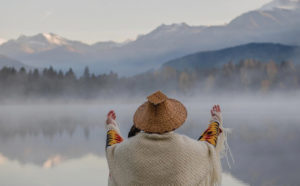
This week, Manuel DaCosta welcome Isaac Anderson on Here’s The Thing (Camões TV). Born and raised in Toronto, of Indigenous and European descent, Isaac Anderson shared with us his journey through the discovery of his Indigenous roots. Giving his opinion on the challenges and what still needs to be done to guarantee the well-being of Indigenous communities.
Manuel DaCosta: Tell us a little bit about yourself.
Isaac Anderson: I was born and raised in West Toronto, Bloor West Village. I come to the knowledge, yearly in my life, that I was adopted. My parents told me so I could form my own opinions and gather as much information as I could. One of the key things in that adoption, that I have discovered, was that I’m half native. I’m indigenous. My mother was a full-blooded Ojibwa, coming out of Alderville First Nation. Not too far east of you, from Toronto, on the south side of Rice Lake. Growing up with that knowledge and understanding, I always felt drawn, in some way, to my Indigenous roots. Not to speak lightly about my father’s side, which was Irish and Western European. My father was born in London, England. For whatever reason, I was always drawn to the Indigenous side. That culture just spoke to me, and it still does. I’m trying to instil some of those values in my children. I think the reason why the culture is attractive is that it’s communal, it’s all inclusive and it’s based on earthly things. Based on nature, in elements and all the values that a lot of other cultures, obviously, push forward, as honesty, trust, inclusiveness… all of these things. I think that is what drives our people and keeps us close together.
MDC: The simple life that you mention… how do you view your background and the simple nature of what being an Indigenous person is about?
IA: I believe it does keep me grounded. I believe that if you accept and understand the history, it will become a very big part of your life. However, I know from experience, that many Indigenous people have turned away from it, for whatever reason. I think that growing up in Toronto, there are many distractions that, you know, you kind of lose focus of what is truly important. Obviously, Toronto being a concrete jungle, it’s very difficult to get in contact with nature.
MDC: This is a country of immigrants. Often, when people come to Canada and try to integrate, they tend to forget the culture where they came from. You should be loyal to the country that embraced you, but there’s no need to forget about where you came from.
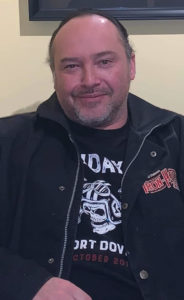
IA: There’s no need, but I think, that for some time to present day, there’s a stigma attached to being Indigenous. There’s a stereotype, there’s a negative view on what it means to be native.
It’s hard to paint with such a broad stroke that includes everyone’s opinion, but it is still out there. There’s racism towards every culture and from every culture. Even though Indigenous are very much a part of the fabric of Canada.
MDC: From your perspective, overall, how is this country treating the Indigenous population?
IA: From what I see and hear, and take in from social media and mainstream media, Canada has a lot more to do. The mystery of Indigenous people in the past, and very recent history that has come to light, and the recent events that happen out west, and in my opinion, unfortunately, there will be many more. As I was saying, Canada has some work to do. Moving forward there needs to be some love and acceptance from Canada. Without getting too in depth, the part that the Government played and the Church has played a significant role in this country.
MDC: July 1st is Canada Day which usually is a day of celebration. This year, Trudeau said that it should be a day for reflection. What should we be reflecting about?
IA: This year, the reflection aspect of Canada Day should be more focused inward, think to yourself: what can I change? What can I do? Not so much reflect on Canada as a whole, but ask yourself if there’s something you can do moving forward as a Canadian, as a member of this community. Look inside yourself and discover a part of yourself that wants to reach out to other cultures. Not sweep history under the rug, pretending it didn’t happen. Look at it, acknowledge it and make concrete steps to better yourself.
MDC: A large portion of the population still looks at Indigenous people with lack of acceptance. The problems Canada faces, especially the Indigenous population, with access to drinking water and the basics of life. We need government to initiate change. Why do you think the Indigenous population’s needs have been ignored for so long?
IA: It’s easier to look away, than looking at the mirror that the Indigenous population are. Looking at them is looking at yourselves and people, and governments, don’t want to do that. Religious institutions don’t want to do that. They want to tell everyone how to live but acknowledge shortcomings in their past is detrimental to their mindset. Moving forward, it comes down to everyone looking at themselves and thinking: what can I do? I don’t think there’s one significant, individual solution to this problem. It has been decades of reflection, acknowledgement, and forgiveness from both sides to make things better. There has to be some structured decisions made to assist and help the Indigenous population to have a better opportunity.
MDC: There has been suggested, more and more, that Canada is a racist country. Why are we talking so much about racism now?
IA: It’s a very general, easy way of looking at it and, in my opinion, I don’t think Canada is a racist country. I think Canada is one of the most inclusive and welcoming countries in the world. I think globally, we should be looked up to as far as our culturally differences and accepting everyone. Unfortunately, racism is a part of cultures all over the world. Do I see an end to it? In my lifetime? I don’t know… I would like to think so. To me, racism is taught, so until those people have an epiphany it will continue.
MDC: In the Reserves in which Indigenous people live, sometimes very isolated, the living conditions are atrocious. As we know, these Reserves are self-governed. Do you think that a lot of the problems affecting the Indigenous population are also the result of poor self-governance?
IA: That’s a loaded question. [laughs] But I think there is some truth to that. From experience, my adopted father, who had a Scottish background, had the opportunity to go and work at Six Nations in Brantford. He was brought in as an advisor and helped to establish a governing system for them; including taxation, policing, and all these things that need to be incorporated. That was a key point, to turn the tide to a prosperous, successful Reservation. Does it have its issues today? Absolutely. We all do.
To speak more to what you were asking earlier. If the government system on the Reservations was more transparent and more socially based, I think things could improve, but they need help. They need financial help; they need boots on the ground kind of help. As much as the Indigenous people would like to embrace our traditions, we need to step into the new century. I haven’t experienced life in a Reserve. As I said, I grew up here in Toronto, I had every opportunity at my fingertips.
MDC: Growing up in Toronto, you have experienced the contact with different ethnicities living together. There was a time that mixing families from different backgrounds was not well viewed. Today, it’s completely accepted. You, for example, are married with someone that has a Portuguese background. How have you combined the two cultures in your life?
IA: Well, the Portuguese culture is very dominant. [laughs] Recently, through my own discovery of my Indigenous background, it has opened myself up to the lifestyle, the challenges that our people face, and I want to express those concerns and pass along whatever ideas and opinions I may have to my children. So, they have a better understanding of what it means to have that cultural background. In addition to the Portuguese side. It’s important to embrace your culture and your history.
MDC: How are your children embracing their Indigenous background?
IA: It comes with a lot of questions. Questioning traditions and values. I answer as best as I can, as knowledgeable as I can, without forcing an opinion on them. Today’s age and technology and being able to be everywhere in the world at the click of a button, there’s really no excuse to not have whatever knowledge you desire. If there’s anything they want to learn, about the Indigenous side or the Portuguese side, they are welcome to embrace any and all of it. We encourage it. Something as simple as trying a recipe or learning a few words of Ojibwe or Portuguese. Ruby attended Portuguese school for a while, her sister is fluent in Portuguese. As for the native culture, everything that is happening at the forefront of media today has forced us to take a look at how we got to where we are; and the importance of acknowledgement of what happened. Understanding that this is a part of our history now.
MDC: I have been saying that with what happened in the Residential Schools, today, I wouldn’t like to be raising children and explain to them what Canada is about. That Canada allows something like this to happen and particularly, Christians being responsible for what was going on in this country and all the Indigenous children that were taken away from their parents and that in many cases disappeared. How can you explain to someone young what is going on?
IA: It is a big challenge to separate a portion of Canadian history from all the good that has happened here and that will continue to happen. I don’t want to impose an ideal that Canada is a bad place for my children. I think they understand this. I’m not going to say that the Catholic Church or the Canadian Government should be given a clean slate, simply because establishment wasn’t around then. They need to acknowledge, moving forward they need to make decisions that will change lives. It’s not easy to have these headlines and these stories and have to filter out, without censorship; what is acceptable for a 15-year-old girl to look at? To help her navigate what she sees and the stories that are coming out.
MDC: As we celebrate Canada Day, I got reminded that John MacDonald, our Prime-Minister, once said “Take the Indian out of the Child” in order to solve the Indigenous problems. When we reflect on this… how can we invert this kind of messages? Do you believe we live in a time that gives the opportunity to reverse things?
IA: I’m hopeful that, because of the grandness of everything that has come to life, the Canadian government, and subsequent governments, moving forward, will take this as an opportunity to better ourselves as a nation. Indigenous culture, as you said, is in; we are here; we are not going anywhere. Our culture will live on. As a population, we can’t allow anything else to happen. So, our children, our grandchildren, our greatgrandchildren, they will know what is to be Indigenous; through large gestures; small gestures; to having literature being handed to them. As a community, Indigenous will persevere, we have and will continue to. In my opinion, Canada needs to do a large gesture, being a time of reconciliation, through media; use technology to its favor; create more Indigenous based programs; perhaps in schooling, offering Indigenous Studies, it’s something that children need to learn. More will suffer over the years if they don’t. These are simple things that can help future generations have a better understanding of Indigenous culture.
Watch the interview on Camões TV, it airs on Bell Fibe 659, Rogers 672 and Ignite TV 880, Saturday, July 3 at 9 pm.



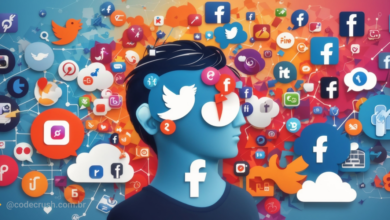
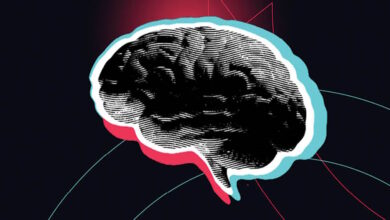

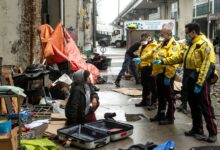

Redes Sociais - Comentários